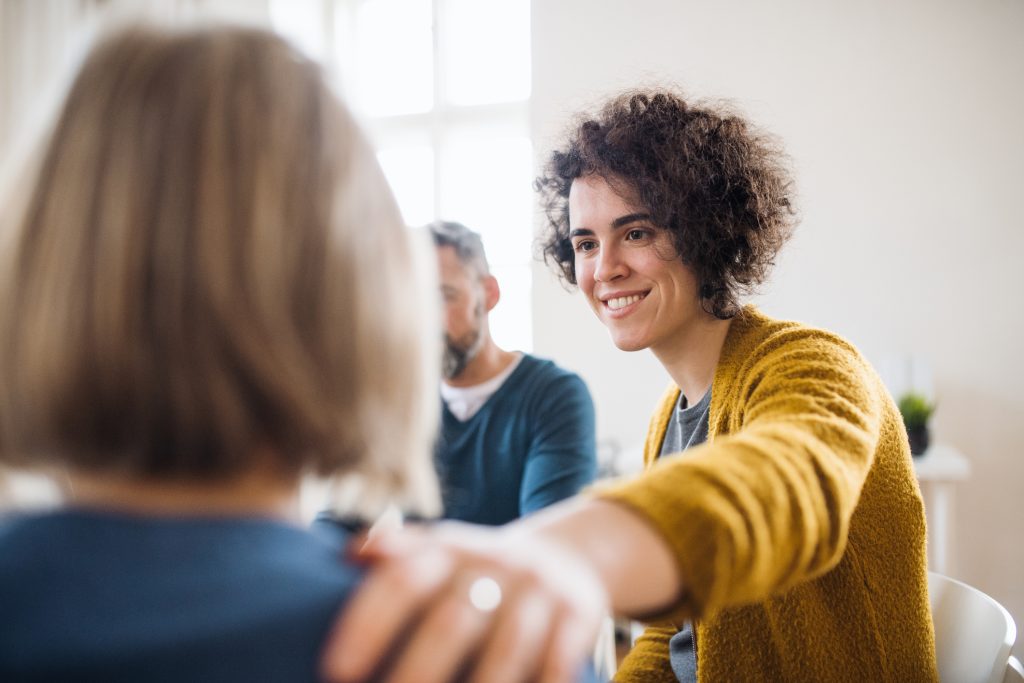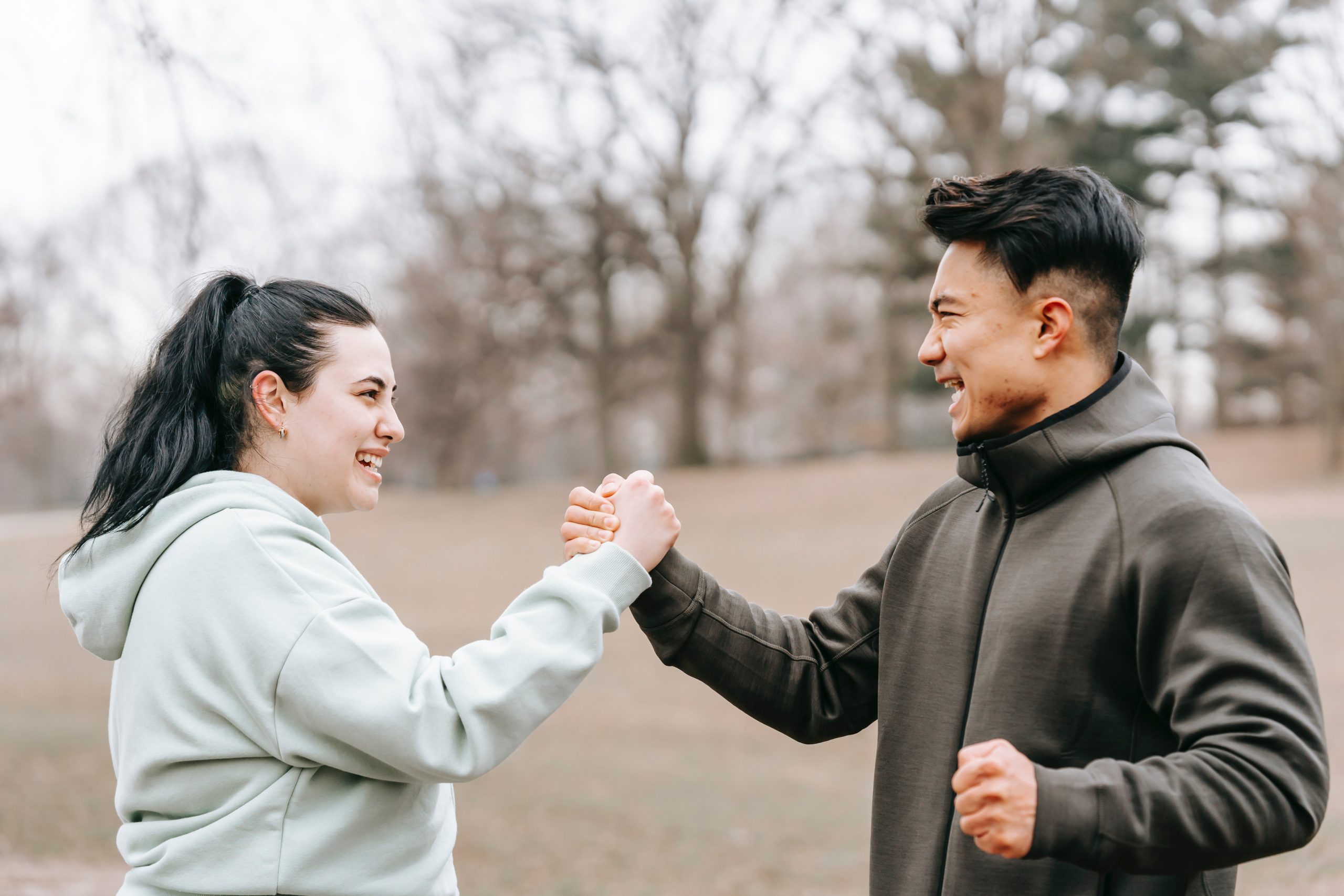Our team of trained and vetted volunteers can support you to take control and make positive changes by setting small, realistic goals and drawing up an action plan and reviewing your progress. Coaching runs alongside our workshops, to help you put your ideas and learning into practice.

What is coaching?
Simply put, coaching is a series of conversations which help you to discover for yourself the best way to achieve your goals, take actions to increase your skills and knowledge, and build your resilience to better manage life’s ups and downs. Through asking questions, giving feedback and gently challenging, our coaches help you get more clarity and decide what you need to do.
For example, we can support you to:
- Manage change: such as moving home, from accommodation search, bidding on Home Choice etc, through preparations such as sourcing furniture & removals, to getting bills set up and utilities connected etc.
- Get more involved in social groups, activities and events in your local community, to reduce isolation and develop your social skills
- Prepare for moving into employment: such as find out about and access courses or other learning activities, take on volunteer roles, develop your CV and job search skills, link in with employment support agencies etc
- Maintain wellbeing: by accessing the resources, and developing the skills you need, such as: coping strategies, stress management, developing healthy habits etc.
- Access specialist services as appropriate, this may include supporting you to make phone calls and accompanying you to initial appointments
- Build confidence and manage independently: by finding ways to overcome obstacles, solve problems, think more positively and build your confidence, to be able to manage independently of Transitions.
What is guided self-help?
There are extensive ‘self-help’ resources that are publicly available, designed to assist people in learning skills and techniques to manage and overcome common difficulties such as anxiety & depression. Although not a substitute for a trained professional therapist, it often helps people to practise self-help techniques with another person. ‘Guided self-help’ from a Transitions volunteer is a similar process to coaching, offering regular check-ins, support and encouragement and a chance to test out new skills independently of formal therapy sessions.
We do not provide any self-help materials but instead encourage the use of templates and guides, books and apps, such as those found on the internet, or provided by the NHS.
Click here to go to our Resources page for useful links and information on self-help.
What training and experience do our volunteer coaches have?
Transitions provides training courses approximately three times a year, to equip volunteers with the skills and knowledge they need for the role. Additional training is provided on an ongoing basis as necessary.
We do not expect our volunteers to become experts in any particular area – they will have an overview of the kind of issues that clients face – but they can research and signpost to other sources of help and advice. Volunteer training focusses on communication skills, goal setting and activity planning, coaching & mentoring and professional practice.
All our volunteers have ‘life experience’ and some may have experience of going through tough times themselves. They do not bring their issues to the role but it can help them to understand how clients are feeling and to relate to clients on a more equal footing than with traditional professional relationships.
Volunteers are carefully selected and required to undertake an Enhanced DBS (criminal records) check. They receive comprehensive training and support, and work within ECI’s policies and procedures. The Transitions Project Co-ordinator oversees the matches and will regularly check in with both the client and volunteer to ensure both are satisfied with the arrangement.
What can I expect?
We would normally expect you to attend one of our workshops prior to being offered a volunteer coach to support you. To make the best of this service, there must be an agreed aim for you and your volunteer to work towards, together. After 2-3 months, progress towards this aim will be reviewed.
If you are accepted for 1-1 support, you will be matched to a suitable volunteer, who will meet with you regularly (usually weekly or fortnightly for around an hour) for up to six months. This will usually be in a café or other public place such as a community centre or library. We can do home visits (subject to a risk assessment) if appropriate but we encourage you to meet in your local community where possible.
During the course of the match, your volunteer will help you, using a person-centred approach, to decide what you want to achieve, to set goals, identify steps necessary to achieve your aspirations and identify sources of help and support. Your current social networks and sources of support are assessed and you will be helped to develop the networks and relationships that would support your chosen area of change, alongside the appropriate professional and specialist services. Goals and action plans are regularly reviewed and revised. The aim is for you to have built enough skills, confidence and support networks within around 6 months, to continue your journey independently of the project.
How quickly will I be matched?
It can be within a month but can take longer, depending on availability of volunteers and taking into account everyone’s preferences. We prefer to match you with someone we think is suitable for you, rather than simply the first person that becomes available. For this reason, if your need is urgent, we will try to signpost you to a service that can respond more quickly.
Whilst you wait to be allocated a volunteer, you will be offered a meeting with a Project Worker for a goal-setting and action-planning session. You will also be invited to our regular meet-ups and may be offered a place on one of our small group workshops.
What is it not?
Volunteers do not offer:
- Counselling or therapy
- Specialist advice
- Befriending in the sense of regular companionship for an indefinite period
- Transport or removals
- Cleaning, housework, or personal care.
The project does not seek to replace professional health, social or support services, and should be seen as complementary to, rather than a substitute for, specialist support.
We cannot work with people who:
- Are not ready, able or willing to take action for themselves
- Have a high risk of harming others
- Have current, unmanaged, drug or alcohol dependence
- Have complex behaviours that require professional support.

